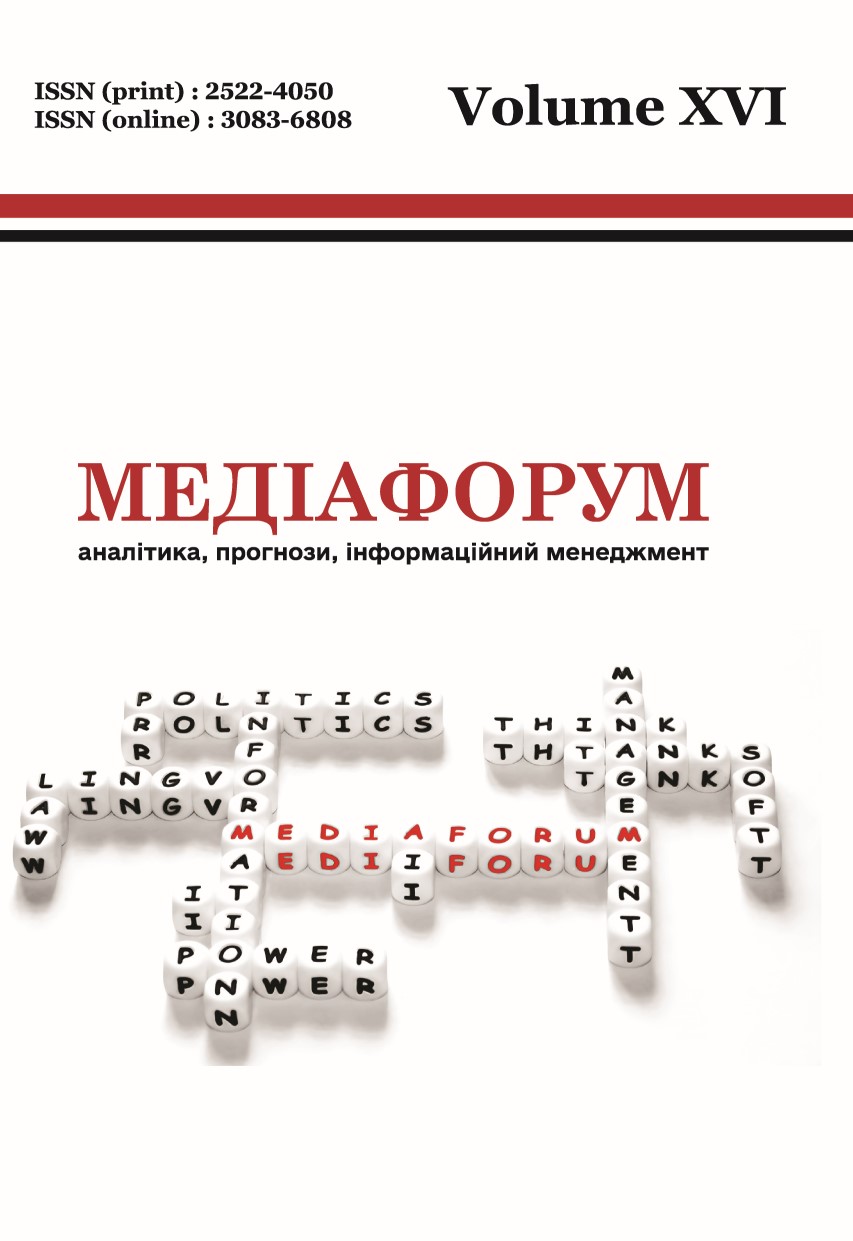The Position оf Taiwan Authorities on the “Taiwan Issue”: a Retrospective Analysis
DOI:
https://doi.org/10.31861/mediaforum.2025.16.195-204Keywords:
Taiwan, China, Taiwan issue, government, international relations, politicsAbstract
The article examines the period of President Chiang Kai-shek՚s rule in Taiwan. It is noted that this period was characterized by a one-party dictatorship, which for a long time managed to ensure the relative stability of its regime. It is noted that the successor Yen Chia-kan faced challenges in the form of rapid diplomatic losses: more and more states broke off diplomatic relations with Taiwan and established them with the PRC. It is noted that Yen Chia-kan’s presidency was perceived by many as a transitional period, since real power was increasingly concentrated in Chiang Ching-kuo, who served as prime minister during Yen Chia-kan’s presidency and later officially replaced him in 1978. The importance of the decision to lift the ban on holding leadership positions in the Kuomintang for party members born in Taiwan is noted.
It is indicated that at the beginning of his presidency Lee Teng-hui, tried to create a basis for peace across the Taiwan Strait, and therefore abandoned Chiang Kai-shek’s policy of opposing communism and restoring a single state, and also canceled the recognition of the Communist Party of China as a rebel organization.
The position on the "Taiwan issue" of Chen Shui-bian, who did not recognize the "1992 Consensus", as well as the formulations related to "one China", is considered. It is noted that Chen Shui-bian is the first president of Taiwan to serve two consecutive terms from 2000 to 2008 and to be elected through direct elections.
It is determined that the warming of relations between the Kuomintang and the Communist Party of China during Ma Ying-jeou’s tenure in power caused concern in the Democratic Progressive Party and a significant part of Taiwanese, which ultimately led to the 2014 protests known as the "Sunflower Movement". It is noted that Tsai Ing-wen publicly denied the existence of the "1992 Consensus", unlike her predecessor from the Kuomintang Party, Ma Ying-jeou.
It is mentioned that the 2024 parliamentary elections in Taiwan, in which the number of seats of the Democratic Progressive Party in parliament decreased, and it now does not have a majority, which complicates the implementation of Lai Ching-te’s election program, which to a large extent became a continuation of Tsai Ing-wen’s policies.
Downloads
References
1. Cheung H. 2019. Taiwan in Time: The (often) forgotten president. Taipei Times. URL: https://www.taipeitimes.com/News/feat/archives/2019/03/31/2003712511.
2. Hansson U. 2007. Chiang Ching-Kuo – A Motive Analysis. URL: https://lup.lub.lu.se/luur/download?func=downloadFile&recordOId=1319621&fileOId=1319622.
3. Inaugural address of ROC 14th-term President Tsai Ing-wen. Office of the President, ROC (Taiwan). URL: https://english.president.gov.tw/News/4893.
4. Jacobs J. B., Ben Liu I.-H. 2007. Lee Teng-hui and the Idea of “Taiwan”. The China Quarterly. Vol. 190. P. 375–393. URL: https://doi.org/10.1017/s0305741007001245.
5. Li Y. 2024. How Taiwan's Sunflower Movement let young people speak up – DW – 03/15/2024. Deutsche Welle. URL: https://www.dw.com/en/how-taiwans-sunflower-movement-let-young-people-speak-up/a-68556695.
6. Mainland Affairs Council, Republic of China (Taiwan). Mainland Affairs Council. URL: https://www.mac.gov.tw/en/News_Content.aspx?n=8A319E37A32E01EA&sms=2413CFE1BCE87E0E&s=D6A36C53F3FB9CC1.
7. President Tsai delivers 2022 National Day Address. Office of the President, ROC (Taiwan). URL: https://english.president.gov.tw/News/6348.
8. Proceedings of the fourth Asia-Pacific Research in Social Sciences and Humanities, Arts and Humanities Stream (AHS-APRISH 2019). Atlantis Press. URL: https://www.atlantis-press.com/proceedings/ahs-aprish-19.
9. Ryan A. 2007. UN Rejects Taiwan's Application for Membership. Voice of America. URL: https://www.voanews.com/a/a-13-2007-07-24-voa18/402694.ht ml
10. Taiwan ex-president Chen Shui-bian gets extra jail term. BBC News. URL: https://www.bbc.com/news/world-asia-pacific-14678192.
11. Taiwan’s 2024 Elections: Results and Implications / B. Hart et al. Center for Strategic and International Studies. URL: https://www. csis.org/analysis/taiwans-2024-elections-results-and-implications.
12. Tsai warns against linking Constitution with ‘1992 consensus’. The Taipei Times. URL: https://www.taipeitimes.com/News/taiwan/archives/2024/01/01/2003811466.
13. Yan-Chih M. 2013. Cross-strait service trade pact signed. Taipei Times. URL: https://www.taipeitimes.com/News/front/archives/2013/06/22/2003565371.
14. Yu-Jie C., Jerome C. 2019. China-Taiwan Relations Re-Examined: The '1992 Consensus' and Cross-Strait Agreements. University of Pennsylvania Asian Law Review. Vol. 14, no. 1. P. 1–40. URL: https://ssrn.com/abstract=3259789














